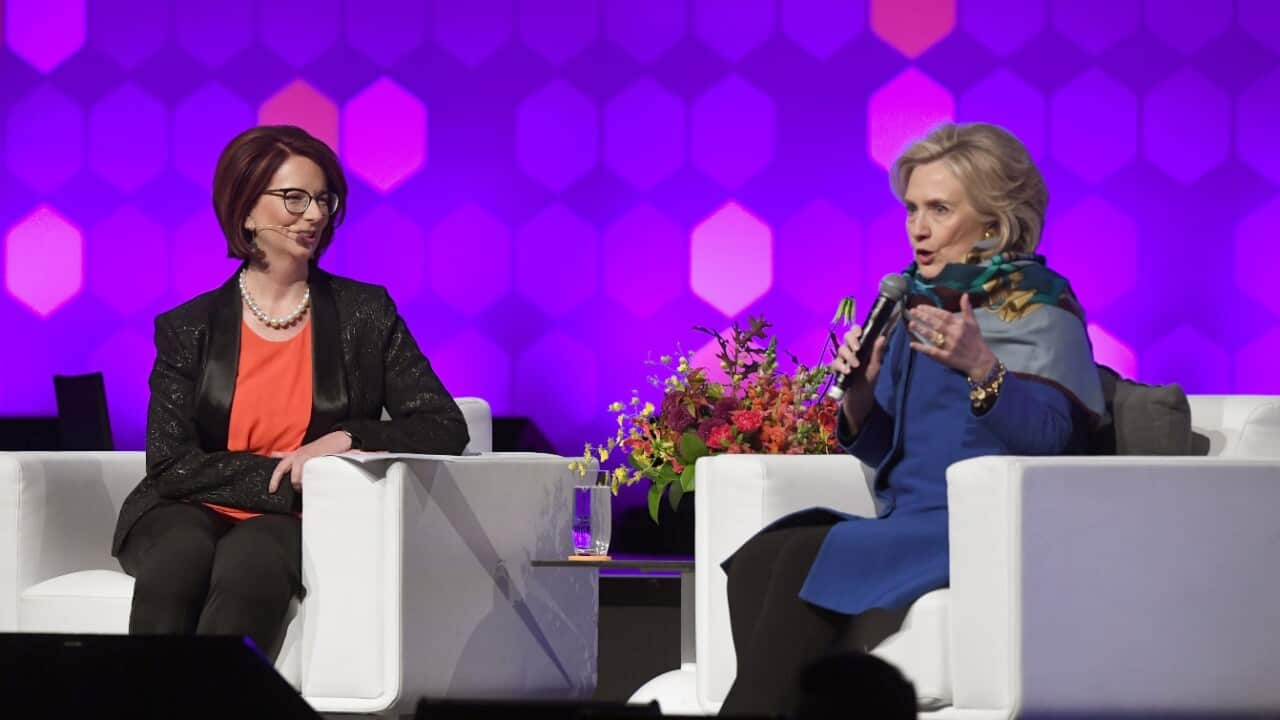".” Former US presidential candidate Hillary Clinton may have this previously, and , but, to me, its meaning remains, at best, unclear.
At worst, the statement is unambitious, even quite elite. If by “politics” Clinton means “professional participation in government”—and I suspect she does—then the statement may not deserve the loud applause it gets.
I mean, sure. Yes. Let’s remove sexism from every single sector, street and segment of society. But, perhaps the focus a high-end feminist like Clinton has on eliminating sexism in the higher-end of town is one best left to high-end feminism.
More women CEOs. More well-paid women newsreaders. More women in the billionaire class, in the executive suites of the finance sector and, of course, more women in politics. This will certainly serve power to a few women, and will almost certainly serve to rid these powerful sectors of a little sexism. This is nice for a powerful female minority, but no big whoop to us, a majority powerless, whatever our gender.
Unless, of course, you believe that power held tightly by a few is a fine and equal way to arrange things. And, many do. Particularly the powerful.
Thumbs up, I guess, to the Australian Labor Party for its commitment to equal parliamentary representation by women. But, thumbs down to the cynical use of this pledge.
More women in politics means more women in politics. That it could mean a positive change beyond the mere fact of more women in politics is doubtful
If Shadow-Treasurer Chris Bowen doesn’t regret his crack that the, “ " than the Coalition cabinet of Australia in 2013, he should. Even leaving aside the Afghanistan’s leaders were appointed by the C.I.A., this was still a cheap, unequal shot. If a party values equality, then a party should probably avoid “even in backwards non-western countries!” humour. In public, at least.
Now, Kelly O’Dwyer, Minister for Financial Services, wants to advance and the power of women in the Liberal party. She’s even . Good “equality” message, right? Money buys power. Fifty grand is just a start.
More women in politics means more women in politics. That it could mean a positive change beyond the mere fact of more women in politics is doubtful.
Last week, Clinton uttered the familiar “women in politics” statement again in Melbourne. I heard it as she said it, and so did more than five thousand people. The crowd, overwhelmingly white and largely female, thundered approval. The security guards, almost all of them men of colour, stood in dutiful silence.
I sat, marvelling not at Clinton’s words—I’d heard them all before—but at the unswerving faith so many white women have in “leadership” and in power. They cheered for the ascent of a few to power as dozens of brown men served. Powerless, uniformed men on low wages protected the security of white women whose new religion is elite power; whose absurd delusion is that women will, even could, share the elite power they crave.
I am a white woman. For the sake of goodness, I am a tertiary educated white woman employed in the knowledge sector. This should predispose me to believe that there is great need for more women in power suits; and to trust that power is somehow noble when tightly held by women.
Women. The more you have of them in politics, the more politics can…what? Preserve the delusion that our political institutions serve the powerless?
I heard Clinton call for more women in power, and on a big screen, I saw the head of host Julia Gillard nod like a dashboard doll. I felt, almost envied, the rush running through five thousand white women’s bodies. They have a shared culture and a religion so euphoric, it can blind them to poverty, race, or any act of brutal or performed by Hilary Clinton as Secretary of State.
Women. The more you have of them in politics, the more politics can…what? Preserve the delusion that our political institutions serve the powerless? Uphold the belief that there is nothing wrong with power as it is currently organised that can’t be solved by a female presence? Tell that to a growing population of impoverished men and women who know that fifty thousand dollars is just an opening bid for entry into power. Tell that to those whose families died at the hands of , and Clinton. Then tell me: what is an “equal” or a “feminist” death? What is “equal” wealth inequality? Is it feminist to hope that men and women fail equally to make in a year what Kelly O’Dwyer can give away in an afternoon?
Perhaps there’s a feminist bomb that kills with kindness. Perhaps there’s a feminist poverty that takes care to punish and starve the powerless regardless of their gender. Perhaps there’s a true feminist future, but I’m beginning to doubt it.
Politics gave feminism a bad name some time ago. Hillary Clinton and her white fangirls have made it a curse-word. An equal share of unequal power is a vulgar ambition, even when sought by well-dressed women of the predominantly white knowledge class.



